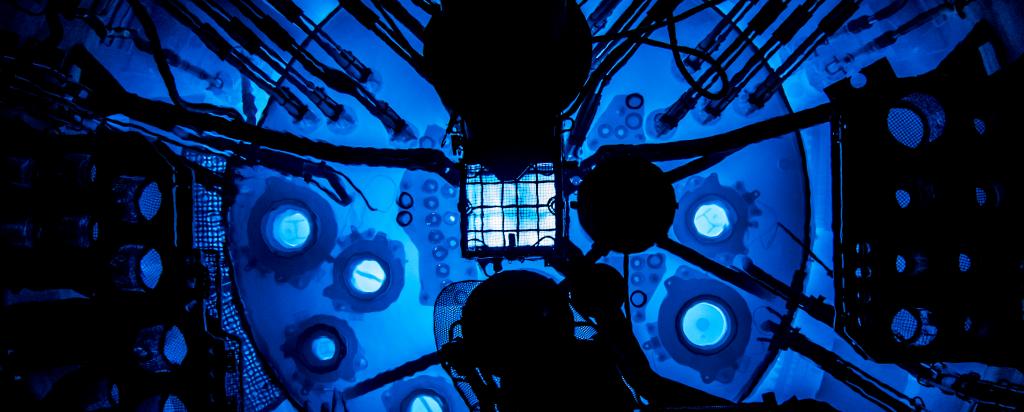
Role at ANSTO
Prof. Ondrej Muransky serves as the Research Program Manager for the Reactor Systems research program at ANSTO. This program is committed to understanding the behaviour and degradation of materials under various reactor operating conditions. Alongside his managerial responsibilities, Prof. Muransky leads several defence-related projects which focus on the development of multi-scale, multi-physics numerical simulations for advanced manufacturing methodologies and the production of novel materials designed to endure extreme environments. He also represents Australia in the Generation IV International Forum (GIF) committees under the OECD Nuclear Energy Agency. These are focused on the development and deployment of the next generation of nuclear reactor technologies such as Very High Temperature Reactor, and Molten Salt Reactor.
Background
Prof. Muransky’s academic journey began at the Technical University in the Slovak Republic, where he earned his Master’s Degree in Materials Engineering of Metallic and Non-Metallic Materials. He then moved to Charles University in Prague, Czech Republic, to pursue his PhD in Physics of Condensed Matter and Material Research at the Faculty of Mathematics and Physics. During his doctoral studies, he spent time at the STFC Rutherford Appleton Laboratory and the European Synchrotron Radiation Facility, where he studied materials using in-situ neutron and synchrotron diffraction techniques. He later worked at EDF Energy on computational welding mechanics, focusing on predicting weld residual stresses in nuclear engineering components of UK nuclear power stations.
Expertise
Prof. Muransky has expertise in materials, physics, and engineering, with a specialized focus on the behaviour of materials under the extreme operating conditions of advanced reactor systems. His areas of expertise include high-temperature degradation, molten salt corrosion, and radiation damage. He utilizes a combination of cutting-edge experimental techniques, such as neutron, synchrotron, and microscopy, in conjunction with innovative numerical methodologies. This integrated approach allows him to gain valuable insights into the multi-scale behaviour of materials under extreme conditions. His proficiency extends to thermo-metallurgical and thermo-mechanical numerical simulations of welding and additive manufacturing, as well as multi-scale crystal plasticity numerical simulations. Prof. Muransky’s skills also encompass neutron & synchrotron diffraction, microscopy & Electron Back-Scatter Diffraction (EBSD), and machine learning and advanced data analyses. His work plays a significant role in the development of multi-physics numerical simulations of advanced manufacturing processes and machine learning predictions for high-efficiency models capturing materials behaviour in operating conditions.
Academic Contributions
Prof. Muransky holds a professorship at the University of New South Wales and the University of Sydney, where he supervises both undergraduate and postgraduate students in the field of experimental and computational nuclear materials engineering. His academic contributions extend beyond teaching, as he has published more than 120 peer-reviewed articles in his field, which have been cited over 2500 times (March 2024). His work significantly contributes to the understanding and development of materials capable of withstanding extreme environments.
Qualifications and Achievements
- Additive Manufacturing for Innovative Design and Production, MIT, US, 2021
- Applying Machine Learning to Engineering and Science, MIT, US, 2021
- Machine Learning, Modeling, and Simulation Principles, MIT, US, 2021
- Quantum Algorithms for Cybersecurity, Chemistry, and Optimization, MIT, US, 2020
- Introduction to Quantum Computing & Quantum Computing Algorithms, MIT, US, 2020
- Leadership in an Exponentially Changing World, Sloan School of Management, MIT, US, 2020
- World Nuclear University, University of Oxford, UK, 2011
- Ph.D. in Physics of Condensed Matter and Material Research, Charles University, Czech Republic, 2006
- Neutron Scattering, University of Oxford, UK, 2005
- Marie Curie Fellowship, University of Salford, Materials and Physics Research Centre, Manchester, UK, 2005
- M.Sc. in Materials Engineering of Metallic and Non-Metallic Materials, Technical University, Slovak Republic, 2003
Committees, Affiliations, and Memberships
- Adjunct Professor, School of Mechanical and Manufacturing Engineering, University of New South Wales
- Adjunct Professor, School of Civil Engineering, University of Sydney
- Chair, Material & Design Working Group, Very High Reactor Systems Generation IV Forum
- Member, Project Management Board & System Steering Committee, Very High Reactor Systems & Molten Salt Reactor, Generation IV International Forum
- Member, Expert Group, Generation IV International Forum
